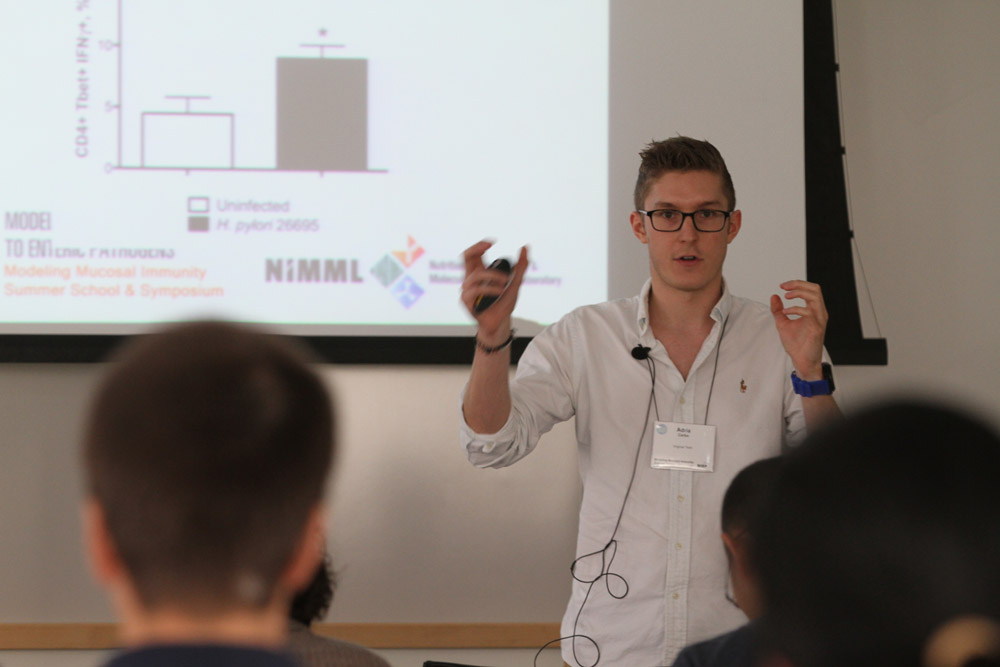Bacterial infection models provide clues potentially useful for controlling gastric ailments

Scientists from the Virginia Bioinformatics Institute at Virginia Tech and Vanderbilt University have made steps toward understanding the immune response involved in Helicobacter pylori infection — a common cause of stomach ulcers.
Using a combined computational and experimental approach, the researchers demonstrated how a protein known as IL-21 may play a key role in immune responses to H. pylori infection. The study was published in MBio.
"Applying systems computer modeling allows us to predict which signaling pathways and T cell responses are impacted by IL-21," said Holly Algood, an assistant professor at Vanderbilt University and a senior and corresponding author of the study. "With this greater understanding, we can refine and better focus our experimental efforts."
IL-21 plays a critical role in immune response to infection. It is produced by a variety of immune cells and has anti-tumor and anti-viral properties.
But it also leads to excessive inflammation. Often, the immune and inflammatory responses triggered by the bacteria are far worse than the infection itself, and it is these responses that lead to pathology and disease.
"Although IL-21 is helpful in many ways, in the case of H. pylori infections, it can exacerbate damage to the stomach. Computational modeling has helped us determine how the IL-21 pathway affects inflammation, and this will lead to the development of better therapies," said Adria Carbo, first author of the study and a researcher with the Center for Modeling Immunity to Enteric Pathogens at the Virginia Bioinformatics Institute.
Center researchers are using computational simulations to find innovative ways to modulate the IL-21 response.
"The computational models we've developed have greatly increased understanding of the role of IL-21 in modulating immune responses to pathogens," said Raquel Hontecillas, co-director and immunology leader of the center. "We can now move toward development of IL-21-based host-targeted therapeutics against infectious and immune-mediated diseases."
Previous work from the center has focused on creating computational models that have helped researchers better understand the dual role of H. pylori as a pathogen and a beneficial member of the gastric microbiota.
H. pylori naturally infects the gastrointestinal tract of approximately half the world's population. The bacterium has been implicated in numerous gastric diseases, including ulcers, gastritis, and gastric cancer.
However, many studies have suggested that H. pylori plays a beneficial role, protecting against childhood allergies, childhood asthma, obesity, and diabetes. Although doctors currently use antibiotics to treat H. pylori-caused disease, some scientists argue that overuse of antibiotics may result in development of antibiotic resistance, making the infection more difficult to treat.
"The collaboration between Vanderbilt and Virginia Tech opens new possibilities for understanding the pathology of H.pylori infection," said Josep Bassganya-Riera, director of the center and also a corresponding author of the study. "Building on the foundation of computational models developed by the Center for Modeling Immunity to Enteric Pathogens, our team effort allows us to gain vital new knowledge about mechanisms of action as well as translation of our computational modeling and bioinformatics innovations to the clinic."
The Center for Modeling Immunity to Enteric Pathogens is funded through the National Institute of Allergy and Infectious Diseases of the National Institutes of Health contract number HHSN272201000056C.




